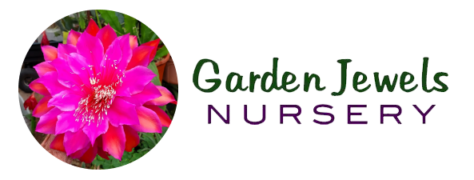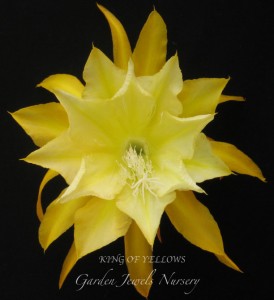|
Epi Care by Season Winter December – January – February |
|
Provide as much light for your epies as possible during the winter months. Remember – if you need to cover your plants during a rain – if possible remove this layer as soon as practical to allow more light for your epies.
Water
Continue to check your plants weekly – remember Epies like to be moist.
Temperature
Be alert to the weather. You must protect your epies from frost and hail. You can protect your plants by insulating your growing area with the heaviest mill clear plastic you can find. Remember – cold weather is a good thing. It enables your plants to lapse into dormancy which is necessary to produce blooms in the spring.
Nutrition
There are several issues to consider when talking about winter nutrition. For most of you winter is the season to allow your plants to remain dormant and for new growth to mature or “harden-off”. Feeding with 0-10-10 or 2-10-10 in encourage blooming can commence as early as February in the most temperate climates. Now, if you have young plants that most likely will not bloom in the spring you can continue to feed them with a balanced fertilizer to encourage growth.
Grooming
It is important that you continue to groom your plants. If you were diligent when your plants stopped blooming at the end of the growing season, then you can take a well deserved rest. Remember, your epie will let you know which branches need to be removed. Remove all dead plant material by breaking off branches or using clear shears.
Planting & Repotting
Winter months are the least appropriate for planting cuttings and repotting. You should be able to store any unspotted cuttings in a cool, dark, damp place until warmer weather arrives. If you feel that your plant is suffering from too much water and that the roots might be rotting, then you need to remove the plant from the pot. You then need to completely remove the roots. As long as you keep your epie in a humid environment it will survive out of the pot until planting season. You should store this plant just like you would unrooted cuttings.
Pests
If you are insulating your plantings or “winterizing” them, you are also creating an environment for vermin and their friends. These pests will eat or devour tender growth. You may have to use poison bait and or rodent traps. Good Luck.
|

619-987-6251
Garden Jewels Nursery is San Diego's primary resource for Epiphyllums, or Epi- Hybrids & Species,
Oxypetalum, Orchid Cactus, Jungle Cactus, Hookeri, E. Crenatum and Semi Shade Plants.
Oxypetalum, Orchid Cactus, Jungle Cactus, Hookeri, E. Crenatum and Semi Shade Plants.
